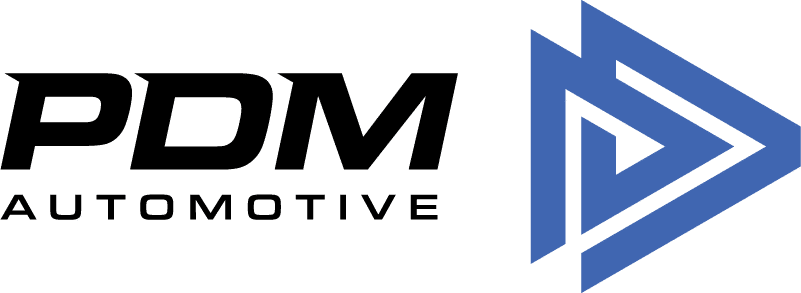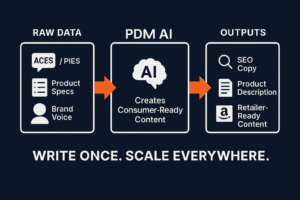According to Fortune, the global Automotive Aftermarket Industry is projected to grow to a staggering $527.25 billion by 2030.
The aftermarket space is becoming increasingly competitive, and manufacturers who don’t find ways to connect with customers will be left behind.
While creating superior parts and components should always be a top priority for brands looking to make an impact, it’s just as important for brands to perfect digital marketing practices such as SEO to grow their revenue.
Search Engine Optimization (SEO) is a critical component of digital marketing that focuses on enhancing a website’s visibility in search engine results pages (SERPs). It involves optimizing various website elements, including its content, structure, and on-page elements like meta tags and images, to improve rankings for specific keywords and phrases related to the business’s products or services.
The relevance of SEO to online sales is profound, as it directly influences the ability of a
business to attract targeted traffic, which can lead to increased conversions and sales.
Less than 1% of searchers click on the second page of Google results (Backlinko, 2023)
SEO also helps your brand stand out at the top of the first search page, which is a coveted location because 99% of people never make it past the first page of results. Users expect that results on the first page are relevant and the brands behind them are trustworthy.
Remember, most people use Google because of the relevancy of the results.
Let’s discuss how this translates to aftermarket parts manufacturers.
SEO Strategy for Aftermarket Parts Manufacturers
Building a company-wide SEO strategy requires a multi-pronged approach encompassing several individual elements. If you miss any of these elements, you could miss revenue-building opportunities.
- Keyword Research and Optimization
- Identify and target keywords and phrases that potential customers use when searching for aftermarket parts.
- Includes both broad terms and long-tail keywords that reflect specific user intents, such as “replacement brake pads for [car model]” or “best performance exhaust systems for [car make].”
- Local SEO Keywords: For businesses with physical stores or specific service areas, include location-based keywords to capture local search traffic.
Every person using a search engine to find the right part or component participates in keyword optimization performed by aftermarket companies.
For example, when a muscle car enthusiast or shop owner types in a search query like “suspension bushings,” they will get a list of the top-rated suspension component companies (like our customer, Energy Suspension) along with individual parts for some of the most searched for components.
Put in a long tail search term (vehicle specific), and the results will be much more pointed, such as this search for “suspension bushing for 2015 Ford F-150.” Here, we’ve got the specific component set for the F-150 linked to the appropriate store for purchase. Some are direct, and some are third-party retailers like AutoZone or Amazon.
If you offer local services, such as a mechanic or speed shop, include location keywords throughout your page so engines like Google Maps can direct customers to you.
- On-Page SEO
- Create detailed, keyword-rich product descriptions that clearly explain each part’s benefits and features. This helps search engines understand your pages’ content and relevance.
- Craft compelling title tags and meta descriptions with targeted keywords to improve click-through rates from search engine results pages (SERPs).
- Use schema markup to provide search engines with detailed product information, which can enhance visibility through rich snippets in search results.
For aftermarket parts companies aiming to enhance their online presence, on-page SEO is a cornerstone strategy that cannot be overlooked.
Optimized product descriptions play a pivotal role in this process, informing potential customers about the benefits and features of each part and signaling to search engines the content and relevance of your pages. By incorporating keyword-rich, detailed descriptions, you ensure that your products are found by the right audience, increasing the likelihood of conversion.
This Energy Suspension and Summit Racing page is an excellent example of getting it right.
Crafting compelling title tags and meta descriptions cannot be understated.
These elements are your first opportunity to make an impression on potential customers in the SERPs. By integrating targeted keywords into these tags, you significantly improve the click-through rates to your website, driving more traffic.
Here’s a look at the meta descriptions and title tags for the product page above:
Using structured data, or schema markup, is an advanced technique for making your product listings stand out. This markup gives search engines a deeper understanding of the product information on your pages, which can be leveraged to display rich snippets in search results.
Here’s what Google’s search page looks like, showing off the snippet for the above Summit / Energy Suspension product listing.
Rich snippets, such as star ratings, price, and stock status, can dramatically increase the visibility and attractiveness of your listings, encouraging more clicks and further boosting your online sales potential.
- Content Marketing For Aftermarket Companies
- Create blogs, how-to guides, and videos that provide value to your target audience.
- Topics can range from DIY repair guides to comparisons of different aftermarket parts.
- Positions your brand as an authority in the aftermarket space.
- Address common questions about aftermarket parts, installation, maintenance, and compatibility.
- Helps capture featured snippets in Google searches.
In the competitive landscape of aftermarket parts, content marketing is a powerful tool for differentiating your brand and engaging with your audience.
By developing educational content such as blogs, how-to guides, and videos, you provide immense value to your target audience and establish your company as an authority in the industry. Topics like DIY repair guides or comparisons between different aftermarket parts resonate well with enthusiasts and professionals, driving organic traffic to your site.
This strategic approach to content nurtures trust with your audience and enhances your SEO efforts, as search engines favor websites that offer valuable and relevant information. Through this content, you can address your customers’ specific needs and interests, creating a loyal community around your brand and products.
- FAQ Section
Addressing common queries through an FAQ section on your website serves a dual purpose.
First, the FAQ section directly responds to your customers’ needs, providing them with the information they seek regarding aftermarket parts, installation, maintenance, and compatibility. This level of customer service enhances user experience and satisfaction.
Second, by targeting these frequently asked questions, your content is primed to capture featured snippets in Google search results. Featured snippets offer significant visibility, often appearing at the top of search results, and can drive substantial traffic to your website.
By strategically including keywords and questions your target audience is searching for, you can improve your chances of securing these coveted positions in search results, further boosting your online presence and authority in the aftermarket parts industry.
Future Trends in SEO for Aftermarket Parts
In the rapidly evolving world of digital marketing, aftermarket parts companies are standing at the cusp of a significant transformation in SEO strategies.
The future of SEO strategy points towards increased reliance on artificial intelligence (AI) and machine learning. These cutting-edge technologies are not just buzzwords but will revolutionize how search engines interpret content and user intent. For aftermarket parts businesses, this means diving deep into creating content that resonates on a human level, powered by insights gleaned from AI’s deep analysis of search patterns and user behaviors.
The rise of voice-activated searches introduces a more conversational tone to queries, making it crucial for companies to adapt their content to this new verbal frontier. Imagine a customer speaking into their device, asking for the “best cargo box for a road trip” — your content needs to guide the customer to your products, most naturally and helpfully possible.
By anticipating these trends and proactively adapting, aftermarket parts companies can confidently navigate the digital future and secure their place at the forefront of their industry.
How a PIM Helps Boost SEO
A Product Information Management (PIM) system can be a powerful tool for aftermarket parts companies looking to enhance their SEO efforts. By centralizing and organizing product data, a PIM system facilitates the creation of consistent, high-quality, and SEO-friendly product information across multiple channels.
Here’s how a PIM helps with SEO:
Centralized Data Management
A PIM system centralizes product information, making managing and optimizing all product data from a single platform easier. This ensures consistency across all digital touchpoints, which is crucial for SEO. Consistent data helps search engines understand and trust your content, which can improve your rankings.
Enhanced Product Descriptions
With a PIM, aftermarket companies can create detailed, keyword-rich product descriptions. By incorporating relevant keywords and phrases that potential customers use in their search queries, companies can improve their visibility in search engine results. A PIM system makes it easier to update and optimize these descriptions regularly, keeping in line with SEO best practices.
Improved User Experience
SEO is not just about keywords and links; it’s also about providing a great user experience. A PIM system ensures that product information is accurate, comprehensive, and up-to-date, which enhances the overall customer experience on a website. Better user experience leads to longer visit durations and lower bounce rates, which are positive signals to search engines.
Efficient Handling of Structured Data
Structured data markup is a critical SEO strategy that helps search engines better understand your pages’ content. A PIM system can automatically add structured data (like schema.org markup) to your product pages. This can lead to richer search results with enhanced features like ratings, prices, and availability status, making your listings more attractive and improving click-through rates.
Multichannel SEO Optimization
Aftermarket parts companies often sell across multiple platforms and channels. A PIM system enables you to tailor your product information for the specific SEO requirements of each channel, whether it’s your own e-commerce site, marketplaces like Amazon, or social media platforms. This tailored approach ensures optimal visibility across the web.
Scalability for SEO Efforts
As your product range expands, maintaining SEO can become increasingly complex. A PIM system scales with your business, allowing for the efficient management of a growing product database. This scalability ensures that SEO efforts remain consistent and effective, regardless of how extensive your product catalog becomes.
Unlock the Full Potential of SEO Strategy with PDM Automotive
In today’s competitive aftermarket industry, standing out in search engine results is more crucial than ever. That’s where SEO and PIM converge to create a powerhouse for your online presence. With PDM Automotive, harness the synergy of top-tier SEO strategies and seamless Product Information Management to elevate your visibility, drive targeted traffic, and boost sales like never before.
Imagine a world where your product listings climb to the top of search results, powered by optimized, keyword-rich descriptions and perfectly structured data; all managed effortlessly from one centralized platform. PDM Automotive turns this into reality with our award-winning AI-powered content generation for improved SEO, ensuring your product information is consistent across all channels and fine-tuned to meet the evolving demands of search engines and customers alike.
Request a demo today to learn how our integrated PIM solution can transform your SEO efforts, streamline operations and drive sales growth.

More Resources
Elevate Your Brand in the Automotive Aftermarket With These Content Management Strategies



